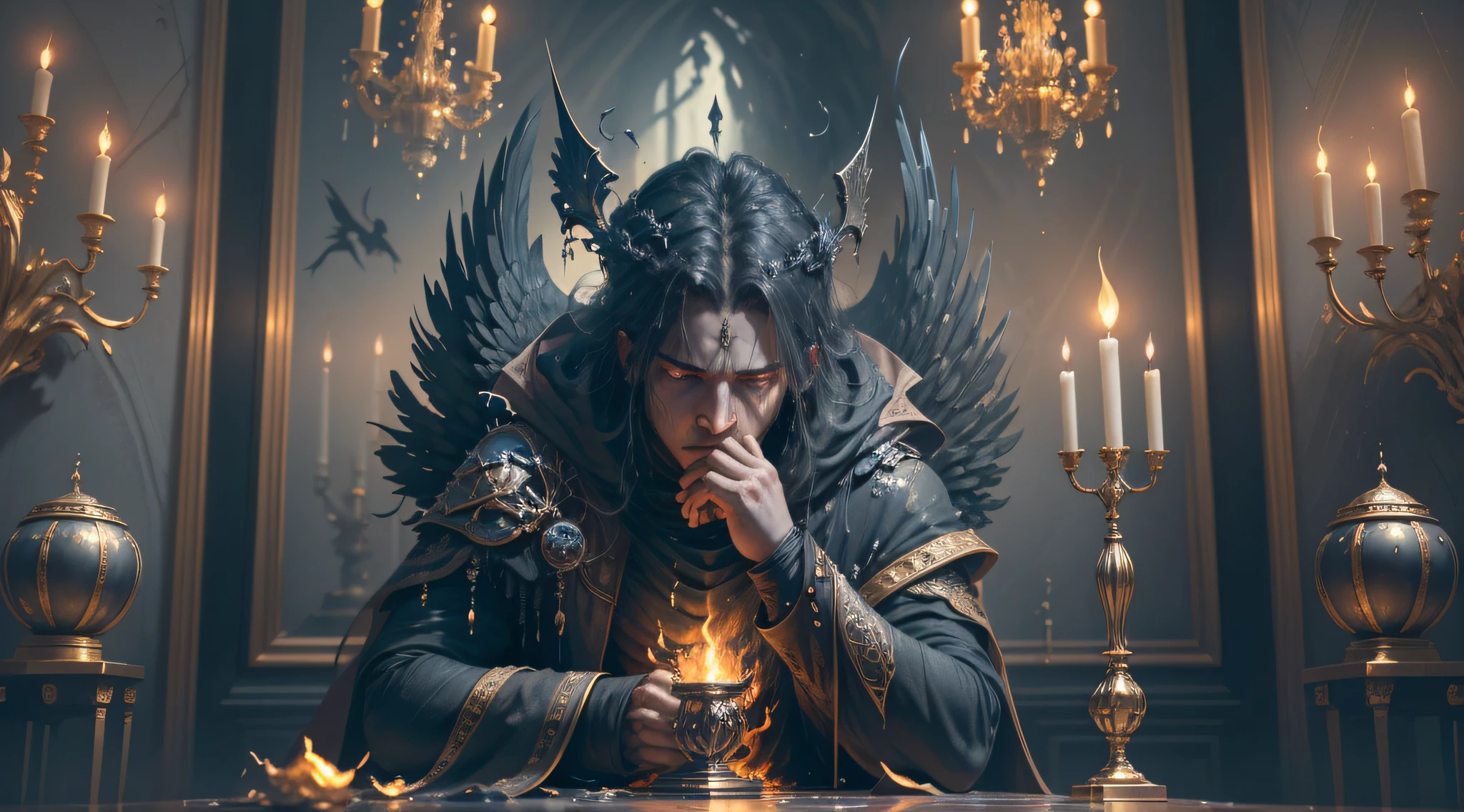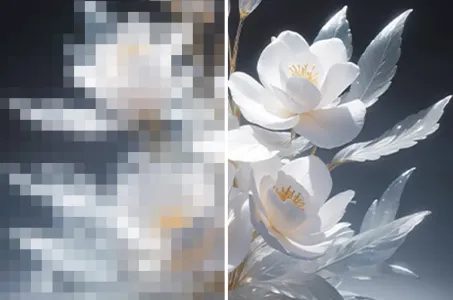A man in a black coat sitting at a table with candles


Il y a des choses intéressantes que seul vous pouvez savoir.
The oil painting depicts Icarus, a legendary figure from Greek mythology, in a night scene filled with desolation and disdain. Icarus is seated on a high throne, majestic and imposing, made of wax and melted candles. The throne rises above the ground, conferring on Icarus a position of superiority in the midst of darkness. The room around you is shrouded in a deep darkness, with black walls that absorb any trace of light. Icarus, with an expression of contempt and boredom on his face, demonstrates his dissatisfaction with the condition in which he finds himself. His vague, bored gaze reflects the monotony and discontent of his existence. His face sculpted in dark and contrasting tones, accentuated by keen eyes, conveys a mixture of defiance and hopelessness. His body is carved out of molten candle, as if he were constantly transforming and consuming himself by fire. The wax drips down your shoulders and limbs, creating a fluid and unstable appearance. The wings, a once grand symbol of their freedom, are now melted and distorted, devoid of their former glory. Icarus is in the pose of boredom, sitting on the throne, with a relaxed posture that reflects his disinterest in the world around him. To complement his figure, he wears a chandelier crown on his head. The melted candles on the chandelier cast a quivering, jagged light, casting ominous shadows across the room. Melted wax also drips down the walls, adding a sense of decay and abandonment to the environment. The painting evokes a dark and melancholic atmosphere, conveying the feeling of a being trapped in its own tragic fate. Icarus, once ambitious and fearless, is now imprisoned on a throne of melted wax, surrounded by a desolate and oppressive room. The expression of contempt and boredom on his face, combined with the pose of boredom and the crown of chandelier, underscores his disenchantment with the human condition and the inevitability of his downfall.
Prompts
Copier les Paramètres
The oil painting depicts Icarus, a legendary figure from Greek mythology, in a night scene filled with desolation and disdain. Icarus is seated on a high throne, majestic and imposing, made of wax and melted candles. The throne rises above the ground, conferring on Icarus a position of superiority in the midst of darkness. The room around you is shrouded in a deep darkness, with black walls that absorb any trace of light.
Icarus, with an expression of contempt and boredom on his face, demonstrates his dissatisfaction with the condition in which he finds himself. His vague, bored gaze reflects the monotony and discontent of his existence. His face sculpted in dark and contrasting tones, accentuated by keen eyes, conveys a mixture of defiance and hopelessness.
His body is carved out of molten candle, as if he were constantly transforming and consuming himself by fire. The wax drips down your shoulders and limbs, creating a fluid and unstable appearance. The wings, a once grand symbol of their freedom, are now melted and distorted, devoid of their former glory.
Icarus is in the pose of boredom, sitting on the throne, with a relaxed posture that reflects his disinterest in the world around him. To complement his figure, he wears a chandelier crown on his head. The melted candles on the chandelier cast a quivering, jagged light, casting ominous shadows across the room. Melted wax also drips down the walls, adding a sense of decay and abandonment to the environment.
The painting evokes a dark and melancholic atmosphere, conveying the feeling of a being trapped in its own tragic fate. Icarus, once ambitious and fearless, is now imprisoned on a throne of melted wax, surrounded by a desolate and oppressive room. The expression of contempt and boredom on his face, combined with the pose of boredom and the crown of chandelier, underscores his disenchantment with the human condition and the inevitability of his downfall.
0 commentaire(s)
0
5
0


![Wlop style [Lora]](https://image.cdn2.seaart.me/temp-convert-webp/jpeg/static/3c79e6d1c5a0a06382b27b1bc66da3ff/4b8cdfdc23522db435cf3c72cfbffef2_low.webp)





